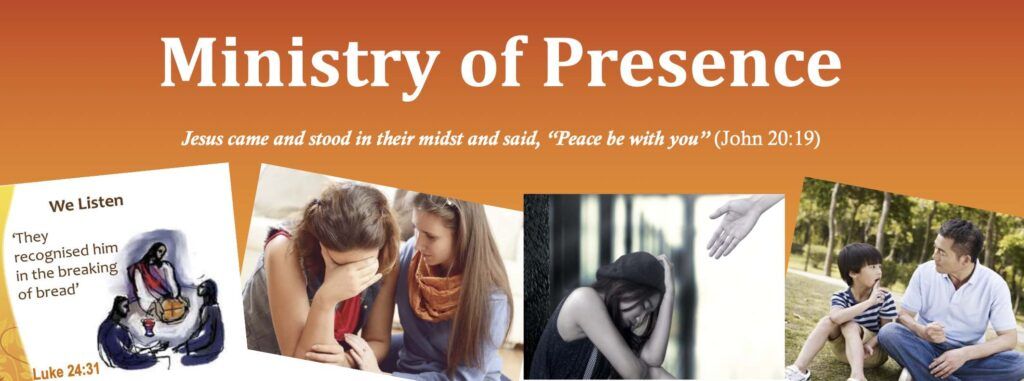Learn
Proven ideas and methods enabling you to master the art of care.
Articles On Trauma

"Did you see that accident yesterday? It was horrible." Both of the guys I normally have coffee with on Tuesday mornings saw it during their normal drive patterns on a local street. Then they went on to describe the horrific damage. Their countenance and tone revealed that it affected them emotionally to happen on a fatal car accident a few minutes after it happened. "Trauma is an emotional response to a terrible event like an accident, rape or natural disaster. Immediately after the event, shock and denial are typical. Longer term reactions include unpredictable emotions, flashbacks, strained relationships and even physical symptoms like headaches or nausea. While these feelings are normal, some people have difficulty moving on with their lives." This definition, along with more explanation and help related to trauma, can be found of the American Psychological Association web site. https://www.apa.org/topics/trauma/ Much like grief, the trauma impacts our emotions but often is never processed . We can't do anything about the accident, don't know the people involved and we are on our way to somewhere else. So, we ignore how disturbed we feel by what we saw. Maybe the only thing we do is commit again to never texting and driving. Each person has their individual response and there are many different traumas. The Sandy Hook/Columbine cooperative provided the graphic above describing some of the risks that are multiplied for the person who has experienced trauma. http://sandyhookcolumbine.org/behaviors-associated-with-traumatic-events/ Drama, with screaming, shaking, fainting, weeping, along with many other extreme responses may accompany the traumatized person or the one who witnesses the catastrophic event. Shock and denial is a possibility in the earlier moments, producing a stoic calm while deciding how to take the next steps. The essential caring skills that we use for the grieving also apply with those traumatized. 1. Be present. 2. Ask questions so the person can tell their story--what they saw, what they are trying to process. 3. Actively listen. 4. Meet basic needs. Most traumas have the element of surprise. The victim is unprepared for the event that was totally unexpected. Our same skills help deescalate the situation. Thankfully there are many counselors that specialize in trauma therapy so we can refer our care receivers to them for deeper and long term help. People today, due to many different factors, experience and see much more trauma than previous generations. We live in a traumatized world so if we who care for people will be aware and use our God given gifts and knowledge to support them, we will help people endure the worst experience of their lives and avoid more catastrophic circumstances caused by unresolved trauma. Please remember to appreciate and pray for first-responders: police, paramedics, EMTs, firefighters, emergency room doctors, nurses and staff who experience traumas every day. News reporters are also confronted with being at the scene and reporting the sad and tragic events. The graphic at the top of the page shows what can happen when somoene who has experienced a trauma does not find support. I hope this post helps you find the courage and resources you need to support the traumatized. Because your care matters!

In our world, troubled with war that deserves the headlines, personal and private traumas also continue, often silently and privately. Maybe you will be called on to care for a shocked and confused young couple, grief-stricken by miscarriage. This week, Susan, my wife, and I were remembering, in emotional detail, her miscarriage experienced almost forty years ago. As a young couple who didn't know how to feel or what to do, we faced the urgent medical needs, comforted each other privately, and immediately moved ahead with life's demands. Susan's grief lasted longer than my comfort, I am sorry to say. I wish I had known then what I learned many years later as a Chaplain at a medical center. When we Chaplains were called to a woman or couple experiencing a "fetal demise," due to the good work of our Pastoral Care director, we had a prepared ceremony to offer. If the parents wanted they could name the baby, but most importantly, a simple ceremony added the emotional and spiritual dimension to the medical care. Susan and I only had medical care. Emotional and spiritual work was up to us. The Naming Ceremony that the Chaplains used was a great comfort at the time of disappointment and sadness and it established memories that would last for a life time. One young couple I visited in the early morning hours was heartbroken to discover, during one of their prenatal doctor appointments, that there was no heart beat. After introducing the Naming Ceremony, the mother quickly replied that she wanted to name the little girl that was not born alive. Following is much of that ceremony. It begins with a prayer. "'Lord, God, we are gathered to share our faith. Right now, the mystery of life and death is overwhelming. Help these young parents to believe and trust in your goodness and wisdom, at a time when human understanding falls short. Amen.". 'The word of the Lord came to Jeremiah, saying, 'Before I formed you in the womb I knew you...' We name this child today so that we may remember her coming among us and we ask God to bless our remembering." To the parents, 'What will you name this child?' They reply, 'We name her _________________.' Then I declare, "O child whom we have known for such a short time (or barely got to know), we call you _____________. Receive this name as a sign of your uniqueness to us and before God. By this name you will be remembered.'" The program can be printed and saved to memorialize this day. There are also resources available to meet this special ongoing grief. Here are two. Contact me if you need more or to find one in your area. Mothers In Sympathy and Support (MISS) Foundation: missfoundation.org Colorado Pregnancy and Newborn Loss: ColoradoPregnancyLoss.org Grief is the most common human experience, and special attention is required when it relates to infants and children, When you help a couple who has experienced a miscarriage, your ministry will be valuable beyond measure. Your care matters! Your life matters, Chaplain Dan Rev. Daniel R. Hettinger 303.905.0478

You will be called to support people experiencing trauma. It might be a natural disaster, a terror attack, a school shooting or a life changing event with someone close to you. Dr. Kevin Ellers, of the Salvation Army, responds to questions, in a KLOVE interview, about his experience at the collapse of the twin towers twenty years ago. He emphasized the importance of presence, listening and practical support. You can go to the KLOVE website listen to the interview and read from Marya Morgan's blog ( https://www.klove.com/news/closer-look/hot-topx/closer-look-heroes-shaped-by-9-11-lessons-from-the-attacks-on-america-2427. ) " Kevin Ellers, D. Min , was in Kansas City when he was called to the Trade Towers collapse in New York City with The Salvation Army . For two weeks he cried and prayed with people who lost husbands or wives, sons and daughters at Ground Zero. He stood in sacred silence alongside firefighters and chaplains when human remains were found in the rubble of what recovery workers called ‘The Pile.’" (KLOVE Closer Look) Traumas, like many needs that confront a person and a Caregiver, cannot be explained. While trying to regain equilibrium, what the victim needs most is our presence, listening and, maybe, some practical support. A man visited my church recently. His trauma was unrecognizable, but his countenance and body language revealed that he was disoriented and needing some help. Two of my colleagues, on separate occasions, noticed him and offered the ministry of presence and listening. They learned his story and he was thankful to tell it. Even though his trauma continued to rock his world, he was no longer alone. He returned to the men who cared enough to be present and listen. This time he had a confession. "If you had not been here for me, I was going to take my life." "In the months and years after 9-11 Dr. Ellers studied trauma care and critical incident debriefing, eventually designing curriculum with titles like Spiritual First Aid , now used to train first responders internationally. Ellers currently serves as the Territorial Disaster Services Coordinator and Chaplaincy Coordinator for The Salvation Army Central Territory. He has also become a life coach." (Also from, K-LOVE Closer Look) Practicing the basics of presence, listening and offering practical support, will equip every Care Pastor or Care Giver to make a difference in the traumas your people experience. But, there are resources we can use to master our caring skills and train others as we grow our care ministries. Crisis Response Care offers videos, podcasts and the possibilities of college credits with Crown College. When you care, it matters, especially in a trauma. You might even save a life.


